In summer, NYU Law faculty share their scholarship around the globe
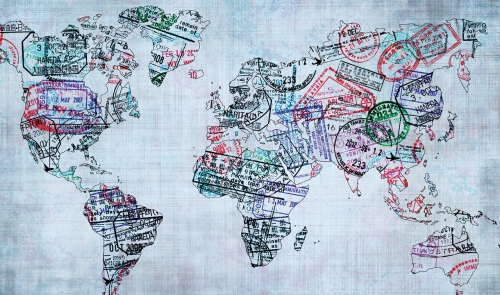
When summer rolls round, NYU Law faculty members often reach for their passports. And not just for R&R. Many venture to countries around the world to teach, lecture, conduct research, or participate in conferences. Their travels highlight the extent to which a global perspective is a central component of NYU Law’s DNA. During the academic year, the cross-border migration largely happens in the other direction, with scholars from around the world coming to Washington Square, often under the auspices of one of the Law School’s many global centers and programs.
In past years, we’ve literally mapped the far-flung summer destinations of dozens of professors. For summer 2025, we asked a sample of faculty members to provide us with dispatches from their trips.
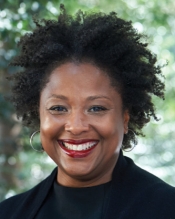
Deborah Archer, Margaret B. Hoppin Professor of Law and president of the American Civil Liberties Union, traveled to Rome for McKinsey’s The World’s Most Influential Women gathering, where invited women leaders from around the world came together to tackle urgent questions about democracy, equity, and the future of our societies.
“In rooms filled with CEOs, business leaders, and human rights advocates, I spoke about the US civil rights struggle as part of a global fight against authoritarianism and inequality. The conversations were candid and often intense—about how technology, economic shifts, climate change, and other forces are reshaping human rights.
“I attended because the challenges we face in the United States are not isolated—they echo in countries across the globe. Defending democracy requires cross-border collaboration and legal education must prepare future lawyers to think globally. My time in Rome was a vivid reminder that while our battles for justice may be rooted in uniquely American histories, they are part of a shared global project—and we have as much to learn from the world as we have to give.”
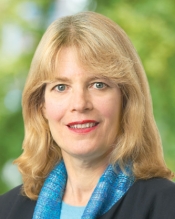
In June, at Luiss University in Rome, Jennifer Arlen ’86, Norma Z. Paige Professor of Law, delivered a paper on the compliance function of using psychology to identify the ways in which corporations can deter or induce misconduct.
“A central lesson is that many important features of the compliance function—such as compensation and promotion policy and employee discipline—lie outside the compliance program as traditionally understood.
“A related lesson is that it is nearly impossible to specify an effective compliance program that is applicable to all firms. As a result, prosecutors and regulators cannot reliably determine in advance of unlawful conduct whether a company had a good compliance program. For that reason, allowing companies to escape liability if they are perceived as implementing a good compliance program is a bad idea. It is also a bad idea because it allows them to profit from misconduct.
“Presenting in Italy was an ideal opportunity because Italy’s corporate criminal liability has a compliance defense.”
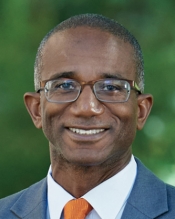
In July and August Kevin Davis, Beller Family Professor of Business Law, visited five cities in Brazil to give talks about his new book, Legal Heterodoxy in the Global South, together with his co-author, Mariana Pargendler of Harvard Law School.
“Brazil was a natural place to launch the book because Brazilian law features prominently in the analysis. In addition, Mariana is a Brazil-trained lawyer. Our talks included a session at the country’s supreme court hosted by its President, Minister Luís Roberto Barroso; a lecture at Brazil’s national development bank (BNDES) hosted by NYU alum Andréa Magalhães; and workshops at five leading law schools. “I also gave a keynote speech at an international conference on law and development.
“It was sobering but fascinating to speak to lawyers around the country—including many NYU alumni—at a time when it was experiencing serious political divisions and tension in its relationship with the United States.”
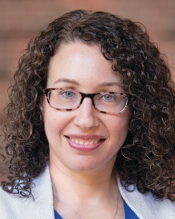
In May, Vice Dean Jeanne Fromer, Walter J. Derenberg Professor of Intellectual Property Law, spoke at the 28th Annual Congress of the Latin American Association of Law and Economics at the Universidad de Chile School of Law in Santiago, Chile.
“At the conference, I presented work I’ve done with Barton Beebe [John M. Desmarais Professor of Intellectual Property Law] over the past few years studying trademark law empirically. That included work we published on whether we’re running out of trademarks in the Harvard Law Review and the future of trademarks in a global multilingual economy in the Trademark Reporter.
“I relished the opportunity to engage about this work and others’ empirical legal work with a community in Latin America with whom I hadn’t yet had the opportunity to regularly interact. We enjoyed discussions about similarities and differences between US law and the laws of Latin American countries as well as how to have more sustained cooperation between American and Latin American legal academia. It didn’t hurt that we got to have many of these rich discussions over delicious Chilean food.”

This summer Professor César Rodríguez-Garavito traveled to France for the UN Oceans Conference; to the United Kingdom for a course offered by the More-Than-Human (MOTH) Rights Program, which he directs; and to Argentina and Brazil for the launch of his book Climate Change on Trial at a series of events and a plenary session at ICON-S, an international learned society devoted to the exchange of ideas on public law.
“A highlight was my trip to London for the third installment of the MOTH Program’s Annual Global Course on More-Than-Human Rights, held at NYU London. The week-long course brought together expert instructors spanning law, storytelling, Indigenous advocacy, and more, and welcomed 40 outstanding practitioners and scholars—including journalists, activists, lawyers, researchers, and policymakers—from 21 countries, ranging from Uganda and Zimbabwe to Costa Rica and Argentina to India, Malaysia, Switzerland, Italy, and beyond. The feedback we received was deeply moving: many participants described the course as transformative, giving them renewed purpose, community, and hope in these challenging times.”
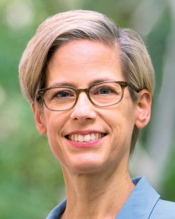
Professor Margaret Satterthwaite ’99, who serves as the United Nations special rapporteur on the independence of judges and lawyers, traveled to Geneva in June to deliver a report on the right of Indigenous Peoples to promote, develop, and maintain their own juridical systems.
“Speaking before the Human Rights Council, I summarized the findings of eleven in-person and online consultations that I was privileged to hold with Indigenous juridical authorities, Indigenous Peoples’ organizations, and experts from around the world. Indigenous justice systems are integral to the autonomy and self-determination of Indigenous Peoples, not only for Indigenous governance, but also for resolving disputes and strengthening community resilience. Indigenous legal institutions and juridical systems can also ensure access to justice in contexts where Indigenous peoples encounter ongoing discrimination and marginalization in ordinary justice systems, contrary to international human rights law.
“The report set out three common challenges to the right of Indigenous peoples to maintain and develop justice systems: non-recognition of Indigenous Peoples and/or their justice systems; formal and informal limitations on the justice systems of Indigenous peoples, despite formal recognition; and the failure of states to adapt ordinary justice systems to the needs of Indigenous Peoples.
“My report was also discussed at two panels in Geneva: one examining the criminalization of Indigenous authorities in Guatemala and another featuring two Indigenous judges, the Honorable Dr. Mariana Yumbay of Ecuador and the Honorable Eykhin Chowdgury of Bangladesh. This report would not have been possible without the hard work of my NYU Law students, who conducted research, engaged in consultations, and traveled with me to Mexico, Oklahoma, and the Philippines to meet with Indigenous judges and legal experts.”

